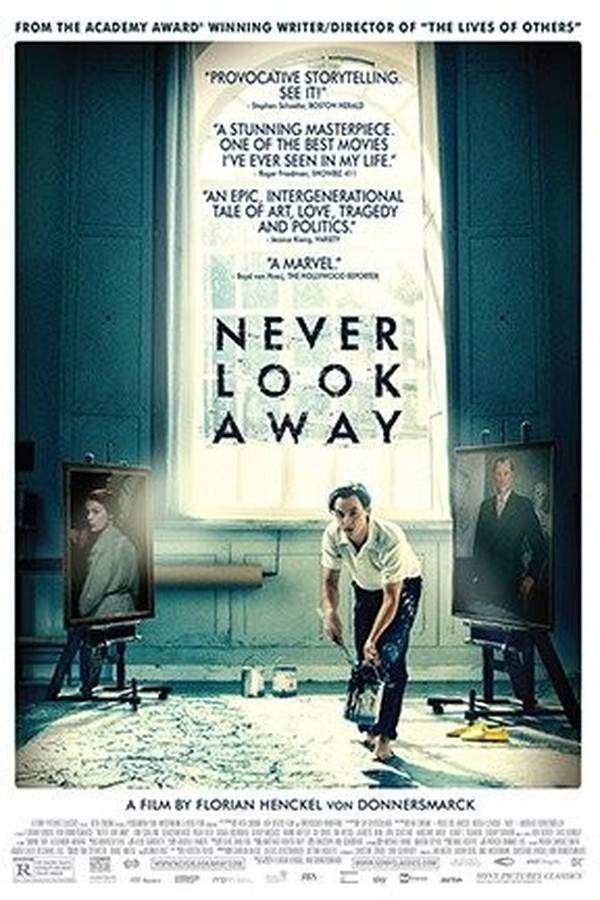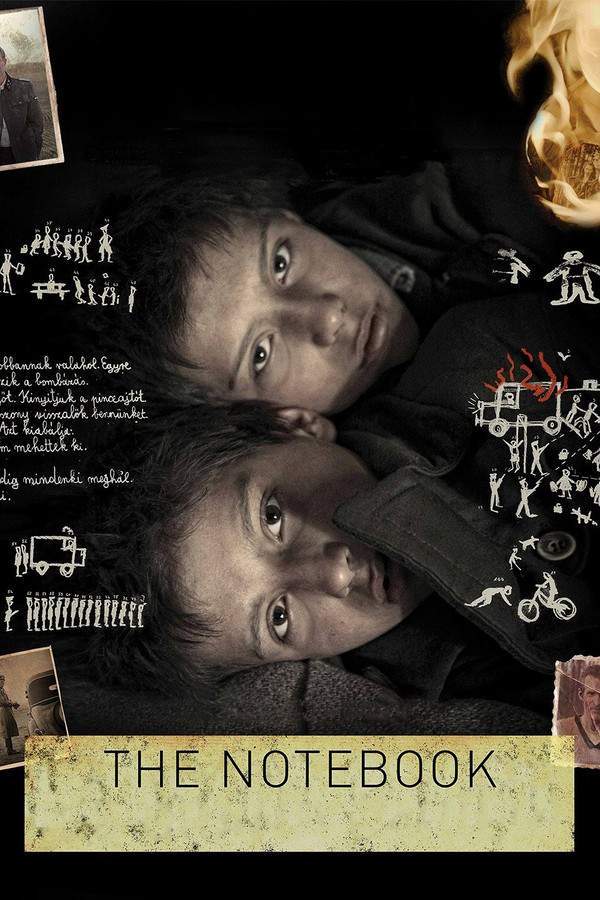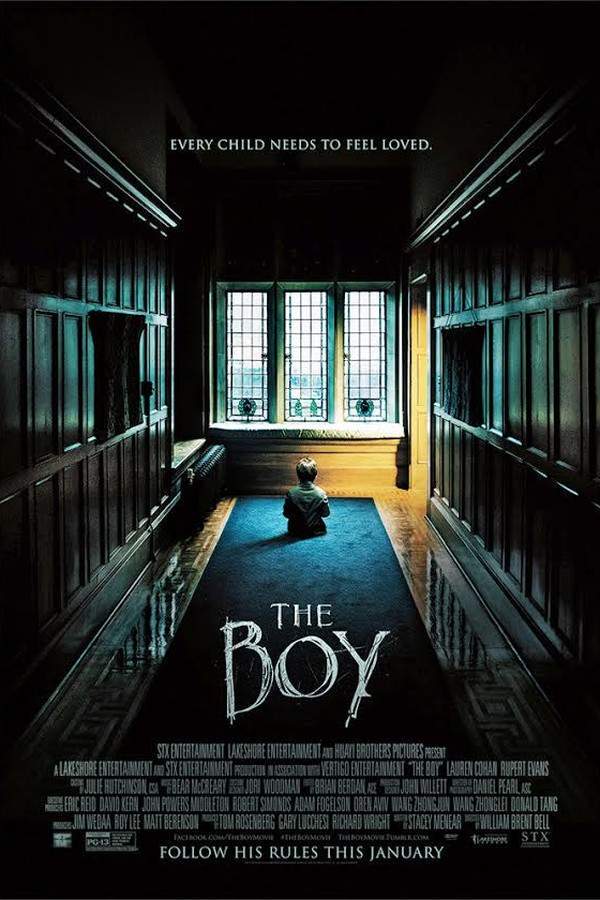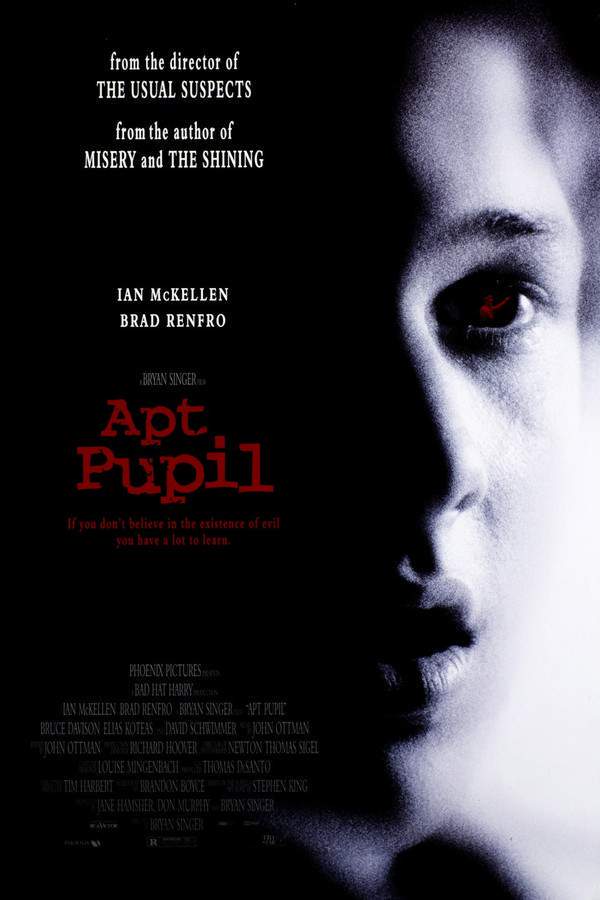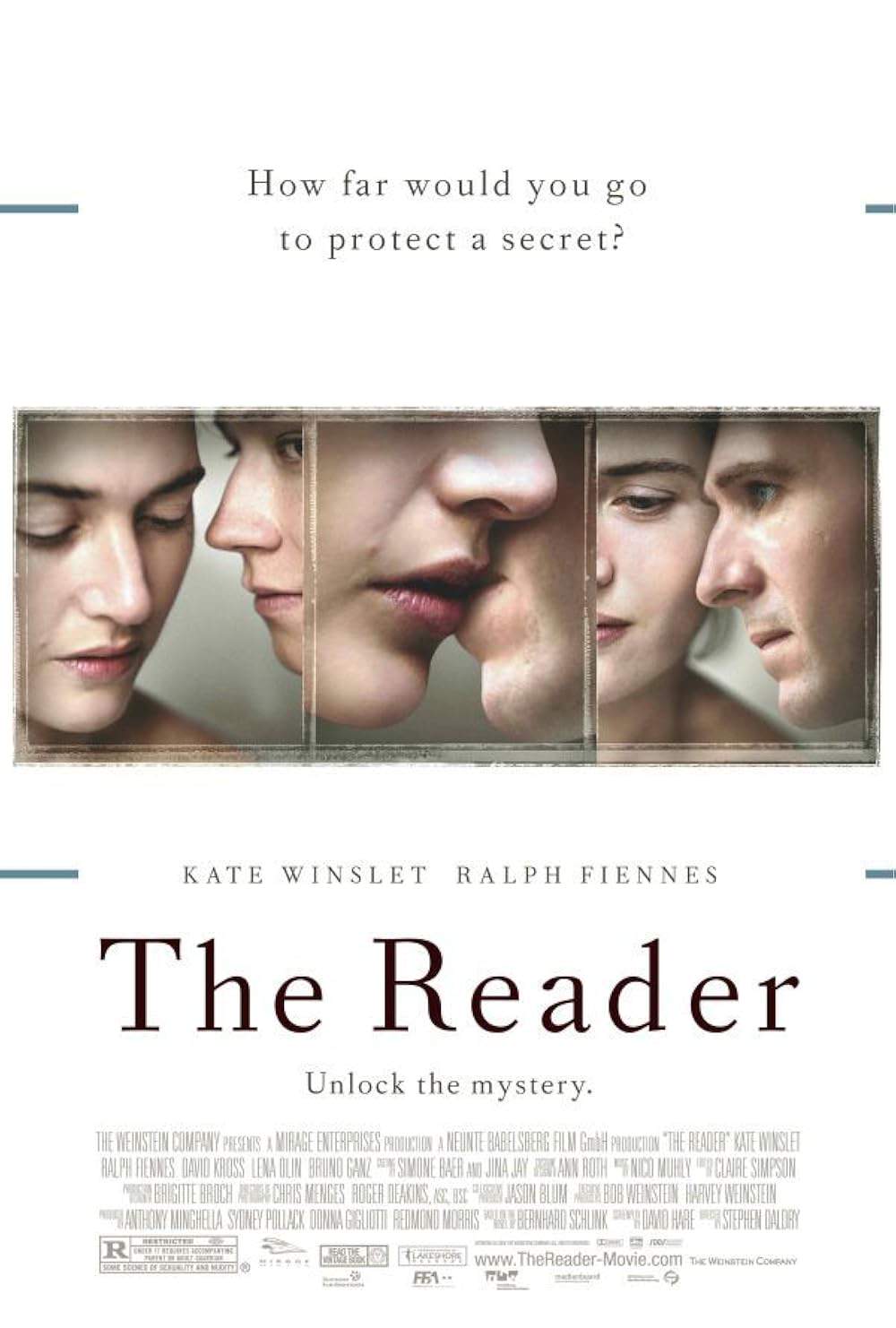
The Reader 2008
Directed by

Stephen Daldry
Made by

Weinstein Company, The
Test your knowledge of The Reader with our quiz!
The Reader Plot Summary
Read the complete plot summary and ending explained for The Reader (2008). From turning points to emotional moments, uncover what really happened and why it matters.
The film opens in 1995 Berlin, where a dapper man named Michael Berg is in the midst of preparing breakfast for a young woman named Brigitte, played by Jeanette Hain, who stayed over. Their parting is awkward, and as Michael observes the passing Berlin S-Bahn, the story shifts back to early 1958 in Neustadt, West Germany. On a dreary, rainy winter day, a troubled teenage Michael, portrayed by David Kross, disembarks from a tram but soon finds himself wandering the streets until he halts in the doorway of an apartment building, where he becomes sick.
At this moment, Hanna Schmitz, the tram conductor, steps in to help him return home. Shortly thereafter, Michael is diagnosed with scarlet fever and must recuperate at home for three months, leaving him with little to do but contemplate his stamp collection.
As spring awakens, he decides to thank Hanna with a bouquet of flowers, leading her to invite him to accompany her to work on the tram line. However, when she catches him peering at her while she dresses, he flees in embarrassment. After a few days, he returns to apologize, and to his surprise, Hanna seduces him. Their relationship blossoms, and Michael visits her daily after school, even forsaking the attentions of girls his age. Their affair, confined to Hanna’s apartment, revolves around literary readings, where she requests he read from various works he studies, including The Odyssey, The Lady with the Dog, and The Adventures of Huckleberry Finn.
Michael goes so far as to sell his treasured stamp collection so that they can embark on bicycle adventures in the countryside. But when Hanna is promoted to an office job, an unsettling change envelops her. On one of his visits, Michael attempts to read her Chekhov’s The Lady with the Dog but is met with her sudden irritation. After their final encounter, Hanna leaves without divulging her new whereabouts, leaving Michael heartbroken.
Fast forward eight years to 1966: a 23-year-old Michael now studies at Heidelberg Law School. He attends a seminar led by Professor Rohl, a former concentration camp survivor, where he witnesses a gripping trial of women accused of letting 300 Jewish women perish in a church fire during the horrifying Death marches that followed the 1944 evacuation of Auschwitz. To Michael’s shock, he discovers that Hanna is among the defendants. This revelation sends him into a soul-searching journey as he grapples with her past at a former camp.
The trial ignites intense debate among the seminar students, with some asserting that the events serve no purpose other than highlighting the abyss of evil. Key evidence emerges from Ilana Mather, a Jewish woman (played by Alexandra Maria Lara), who recounts her harrowing experiences during the Holocaust. When Hanna takes the stand, she shockingly acknowledges her awareness of Auschwitz’s true nature, her admission laying bare the grim reality of her actions as an SS guard. She candidly reveals that she selected ten weaker prisoners each time to be executed for the sake of processing new arrivals, all while demanding that her victims read to her.
The tension escalates when it is revealed that 300 counts of murder stemmed from a tragedy in which Hanna and her fellow guards locked church doors during an aerial bombing, leading to a devastating inferno. Despite the mounting evidence, Hanna adamantly denies her involvement until faced with a document bearing her signature. In that moment, the truth crystallizes for Michael: Hanna is illiterate, and many of her choices—including her affiliation with the SS—were made to obscure this fact.
With profound conflict, Michael realizes he possesses knowledge that could aid one of the defendants yet feels torn over revealing it. Hanna ultimately receives a life sentence while her co-defendants face significantly lighter penalties. Following his graduation, Michael marries Marthe and has a daughter named Julia but remains emotionally distant, leading to the dissolution of his marriage.
Years later, he reconnects with Hanna by sending her audio tapes of literary works that help her teach herself to read. As Michael drifts further from his family, he receives a letter from the prison warden regarding Hanna’s impending release on parole. Reluctantly, he agrees to support her upon her release, finds her a place to live, and secures a job for her. However, during their awkward reunion, Hanna, burdened by memories of her past, reveals her harrowing realizations about her actions during the war. Tragically, Michael’s visit ends in despair, as Hanna takes her life shortly after his departure, leaving him a note and a tea tin filled with her savings.
The narrative concludes with Michael’s journey to New York, where he confesses his past with Hanna to Ilana. He reveals Hanna’s illiteracy and expresses his desire to honor her last wishes by donating her savings to support an organization combatting adult illiteracy. Ultimately, Michael revisits Hanna’s grave with his now adult daughter, Julia, beginning to share the intricate and painful story of their shared past.
The Reader Timeline
Follow the complete movie timeline of The Reader (2008) with every major event in chronological order. Great for understanding complex plots and story progression.
Introduction in Berlin
The film opens in 1995 Berlin, showcasing Michael Berg preparing breakfast for Brigitte. Their parting is awkward, symbolizing a transition into Michael's memories that will unfold throughout the story.
Michael Falls Ill
The story shifts back to early 1958 when a troubled teenage Michael arrives in Neustadt, West Germany. He becomes sick after wandering the streets and is helped by Hanna Schmitz, a tram conductor.
Recovery and Reflection
After being diagnosed with scarlet fever, Michael recuperates at home for three months, where he contemplates his stamp collection. This period of solitude foreshadows his deeper thoughts about relationships.
The Flower Gesture
As spring arrives, Michael decides to thank Hanna for her kindness with a bouquet of flowers. This gesture leads to an invitation from Hanna for him to accompany her to work, marking the beginning of their unique bond.
An Embarrassing Encounter
During one of Michael's visits, he peeks at Hanna while she dresses, causing him embarrassment and prompting him to flee. However, he soon returns to apologize, leading to a surprising turn in their relationship.
Blossoming Affair
Michael and Hanna's relationship deepens as they engage in an affair characterized by literary readings. They read notable works together, which signifies Hanna's encouragement of Michael’s intellectual growth.
Bicycle Adventures
In a show of commitment, Michael sells his stamp collection so that they can explore the countryside on bicycles. This choice highlights his passion for Hanna and emphasizes his youthful disregard for societal expectations.
The Shift in Hanna
After Hanna secures a promotion to an office job, she undergoes a noticeable change. Michael’s attempts to read literature to her are met with irritation, foreshadowing the tensions that arise in their relationship.
The Trial Revelation
Fast forward to 1966, Michael is now a student in Heidelberg, where he attends a seminar on a gripping trial involving women linked to wartime atrocities. To his shock, he discovers Hanna is among the accused, forcing him to confront her past.
Hanna Takes the Stand
During the trial, Hanna acknowledges her actions as an SS guard, revealing her complex character and admitting her awareness of atrocities at Auschwitz. This bold confession shakes Michael to his core.
The Weight of Truth
As the trial progresses, evidence emerges linking Hanna to a tragic event where 300 Jews died in a locked church during a bombing. Michael grapples with the moral implications of what he knows about Hanna's illiteracy.
Aftermath of the Trial
Hanna is sentenced to life in prison, while her co-defendants face lighter sentences. Michael's personal life becomes strained as he marries Marthe, but remains emotionally distant due to his unresolved feelings for Hanna.
Reconnecting with Hanna
Years later, Michael sends Hanna audio tapes to help her learn to read, signaling a reluctant reconnection. He is soon informed of her parole, igniting conflicting feelings about supporting her post-incarceration.
A Tragic Reunion
During Hanna's release, their meeting is fraught with tension as she confronts her past. The reunion ends tragically when Hanna takes her own life shortly after Michael's visit, leaving him shattered.
Seeking Redemption
In New York, Michael confesses his past with Hanna to Ilana, revealing her illiteracy and his intention to honor her memory. His journey culminates in visiting Hanna's grave with his daughter, sharing their painful history.
The Reader Characters
Explore all characters from The Reader (2008). Get detailed profiles with their roles, arcs, and key relationships explained.
Michael Berg (Ralph Fiennes)
Michael Berg is a complex protagonist whose life is profoundly influenced by his early relationship with Hanna. As he navigates the emotional aftermath of their affair and contends with his own moral dilemmas later in life, he embodies the struggles of memory, guilt, and the search for redemption.
Hanna Schmitz (Kate Winslet)
Hanna Schmitz is a deeply flawed character whose past as an SS guard complicates her relationship with Michael. Her illiteracy and subsequent actions reveal a character caught between her traumatic history and the longing for understanding and acceptance.
Professor Rohl (Bruno Ganz)
Professor Rohl serves as a moral compass and a pivotal figure who challenges Michael and his fellow students to confront the realities of history. His own experiences as a concentration camp survivor imbue him with the authority to provoke critical discussions about guilt and accountability.
The Reader Settings
Learn where and when The Reader (2008) takes place. Explore the film’s settings, era, and how they shape the narrative.
Time period
1958, 1966
The story unfolds across significant parts of the late 1950s to the mid-1960s, a period marked by post-war recovery in Germany and a struggle to come to terms with the impacts of World War II. It captures the tension and moral questioning of a society grappling with the legacy of the Holocaust and the revelations about personal and collective guilt.
Location
Berlin, Neustadt, Heidelberg
The film is set in various locations in Germany, including the bustling city of Berlin, known for its rich history and cultural significance. Neustadt represents a quieter suburban area where significant early events unfold, and Heidelberg serves as a backdrop for the university setting, blending academic life with intense moral dilemmas.
The Reader Themes
Discover the main themes in The Reader (2008). Analyze the deeper meanings, emotional layers, and social commentary behind the film.
📚
Literature
Literature plays a central role in the relationship between Michael and Hanna, serving as a means of connection and exploration of deeper human emotions. The act of reading becomes a metaphor for enlightenment and understanding, juxtaposed against the darker themes of ignorance and complicity revealed throughout the film.
⚖️
Justice
Justice is a prevailing theme, highlighted through the courtroom drama and the moral implications faced by individuals who were once perpetrators. The film questions what justice means for those involved in atrocity, and how personal history impacts the perception of guilt and innocence.
❤️
Love
The complicated bond between Michael and Hanna embodies a profound, albeit flawed, love. Their relationship showcases the intersection of personal affection with the weight of past traumas, expressing how love can both uplift and destroy.

Coming soon on iOS and Android
The Plot Explained Mobile App
From blockbusters to hidden gems — dive into movie stories anytime, anywhere. Save your favorites, discover plots faster, and never miss a twist again.
Sign up to be the first to know when we launch. Your email stays private — always.
The Reader Spoiler-Free Summary
Discover the spoiler-free summary of The Reader (2008). Get a concise overview without any spoilers.
In the quiet streets of post‑war Berlin, a young university student immersed in legal studies finds his routine suddenly unsettled by the appearance of an enigmatic document and a locked briefcase that seem to pulse with hidden significance. The city itself, still bearing the faint scars of its recent past, provides a backdrop of restrained elegance and lingering uncertainty, a place where the ordinary and the mysterious coexist in the same narrow alleys and sunlit cafés.
When the scholar, Michael Berg, first encounters the briefcase, he is drawn into a world where literature and longing intersect. His days, once filled with statutes and lectures, become increasingly occupied by a series of puzzling clues that demand both intellectual rigor and a willingness to explore the more intimate corners of his own imagination. The narrative unfolds with a measured, almost reverent pace, allowing the audience to feel the weight of every turned page and the quiet tension that builds with each unanswered question.
Central to the story is Hanna Schmitz, an older, charismatic figure whose presence exudes both warmth and enigmatic distance. Their connection is forged through shared moments of reading aloud, a ritual that blurs the line between mentorship and attraction. As their relationship deepens, the briefcase and its contents act as a catalyst, pulling the two into a delicate dance of curiosity, desire, and the unspoken histories they each carry. The film sways between the scholarly environment of lecture halls and the intimate, dimly lit rooms where secrets are whispered.
The tone remains contemplative and subtly charged, inviting viewers to linger on the nuances of each encounter. It is a story about the power of words to bind strangers, the allure of unsolved mysteries, and the ways in which personal and academic quests can become inextricably linked, leaving the protagonist forever changed by the enigmatic journey that began with a single, cryptic document.
Can’t find your movie? Request a summary here.
Movies with Similar Twists and Themes
Uncover films that echo the narrative beats, emotional arcs, or dramatic twists of the one you're exploring. These recommendations are handpicked based on story depth, thematic resonance, and spoiler-worthy moments — perfect for fans who crave more of the same intrigue.
Featured on this page

What's After the Movie?
Not sure whether to stay after the credits? Find out!
Explore Our Movie Platform
New Movie Releases (2025)
Famous Movie Actors
Top Film Production Studios
Movie Plot Summaries & Endings
Major Movie Awards & Winners
Best Concert Films & Music Documentaries
Movie Collections and Curated Lists
© 2025 What's After the Movie. All rights reserved.


